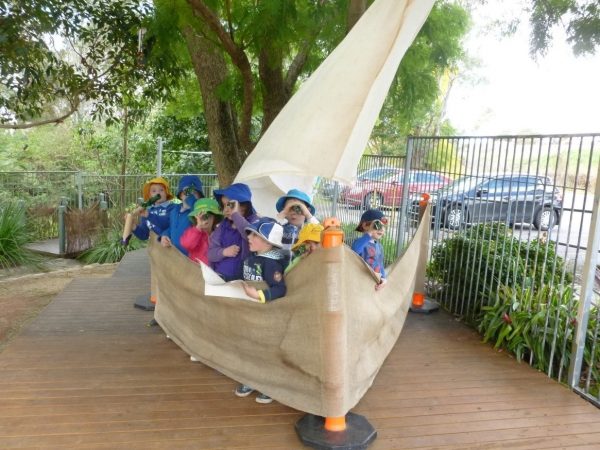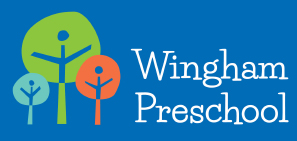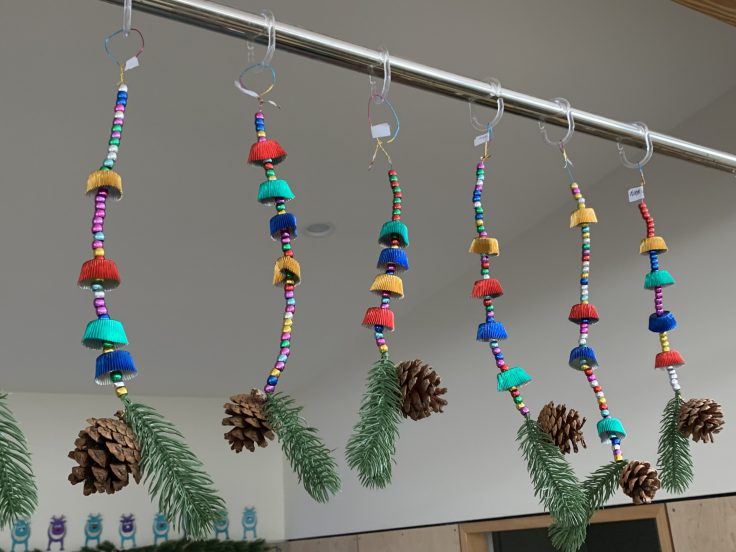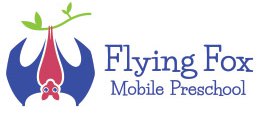Preschool Program
The Early Years Learning Framework (EYLF) is embedded in the Wingham Preschool curriculum. The underlying principles for the EYLF are the concepts – Belonging, Being and Becoming.
The framework focuses on a vision for children’s learning; that all children need to experience learning that is engaging and builds success for life. Fundamental to the framework is the view that children’s lives are characterised by belonging, being and becoming.
- Belonging is knowing where and with whom you belong – family, cultural group, neighbourhood and wider community – relationships are crucial to a sense of belonging.
- Childhood is a time to be, to seek and make meaning of the world. Being recognises the significance of here and now, knowing themselves, building and maintaining relationships, engaging in life’s joys, complexities, meeting challenges in everyday life.
- Becoming reflects the process of rapid and significant change that occurs as young children learn and grow.
Wingham Preschool educators work in partnership with families and use the learning outcomes to guide their planning for children’s learning. We identify children’s strengths and interests, choose appropriate teaching strategies and design the learning environment. The teaching team uses the framework as a guide in curriculum decision making, to assist with planning, implementing and evaluating quality in our preschool.
Wingham Preschool acknowledges that the framework conveys the highest expectations for all children’s learning through the following five learning outcomes:
- Children have a strong sense of identity;
- Children are connected with and contribute to their world;
- Children have a strong sense of wellbeing;
- Children are confident and involved learners;
- Children are effective communicators.
Children’s Learning
The Early Years Learning Framework identifies that children’s learning is dynamic, complex and holistic. Physical, social, emotional, personal, spiritual, creative, cognitive and linguistic aspects of learning are all intricately interwoven and interrelated. The Early Years Learning Framework explains that play is a context for learning that:
- allows for the expression of personality and uniqueness;
- enhances dispositions such as curiosity and creativity;
- enables children to make connections between prior experiences and new learning;
- assists children to develop relationships and concepts;
- stimulates a sense of wellbeing.
What children learn from our daily program.
The daily program is the thoughtful and carefully developed collection of experiences that support children’s learning, progress and development to meet learning outcomes. All children build relationships of trust to feel secure in the preschool environment. Educators support and encourage the development of independence, to move from one activity to another with confidence and enjoy moments of achievement and success. Educators respond to children’s ideas, needs and allow children choice in their learning. Consistent routines allow for children to feel confident in knowing what will come next. The program includes:
- a mixture of small group or individual teacher led activities and small groups of individual initiated free play activities;
- large group and whole group teacher led activities, responding to children’s interest and supporting the acquisition of learning outcomes e.g. stories, language games, music, movement, dance etc.;
- a variety of routines including meal times, where children are together as a group with educators and discussion occurs and ideas exchanged.
Preschool Daily Program
8.15 am onwards Families are greeted by educators on arrival and children pack away belongings to prepare for the preschool day.
8.15 – 11.30 am INDOOR Activities – A variety of indoor activities are planned and prepared to meet learning outcomes including: supporting children’s social, emotional, fine motor, cognitive (processes of perception, memory, judgement and reasoning) and language skills. Interesting and inviting learning spaces are set up to allow children to independently choose activities that build on their interests and facilitate development. Children have opportunities to experience craft, art, dramatic/imaginative/creative play, construction, blocks, problem solving games, puzzles, and activities that support mathematical, science, and language skill development.
8.15 – 11.30 am OUTDOOR Activities – A variety of outdoor activities are planned and prepared to meet learning outcomes including: supporting children’s gross and fine motor/movement skills, social, emotional, self regulation, cognitive and language skills. Challenging and exciting activities are set up to allow children the opportunity to explore climbing, sand play, water play, bikes, dramatic/imaginary play, problem solving, swings, balls, balancing, crafts, creating, group games, the list is endless.
Both the indoor and outdoor learning environment allow children the opportunity to learn dispositions for learning such as curiosity, co-operation, confidence, creativity, commitment, enthusiasm, persistence, imagination, reflexivity and skills such as problem solving, inquiry, investigation, experimentation, hypothesising, researching, adapting and transferring knowledge.
Indoor and outdoor activities are swapped to meet weather conditions e.g. In terms 2 and 3, children are indoors in the morning because it is cold outdoors. In terms 1 and 4, children are outdoors in the morning because it is hot outdoors in the middle of the day.
10.00 – 10.30 am Physical activity activity followed by ‘Sip and Crunch’. Children participate in physical activity to develop physical strength and improve concentration during the winter routine. Children eat a piece of fruit or vegetable and drink from their water bottle.
10.30 – 11.30 am Continue indoor or outdoor activities depending on the term/time of year.
11.30 – 11.45 am Children work in partnership with educators to pack-away preschool activities.
11.45 am – 12.15 pm Group Experience – incorporating many activities including music, movement, discussion, stories, poetry, singing and finger-plays. Group time supports children to practice and develop self-regulation, attention to task, turn taking, and listening to educators or peers through fun and interesting activities.
12.15 – 12.45 pm Lunch – where children and educators sit together to eat lunch at the tables. It is a relaxed, social time, encouraging language and communication. Educators and children often talk about nutrition, staying healthy and strong.
12.45 – 2.15 pm Indoor or Outdoor activities, depending on the term/time of year.
2.10 – 2.20 pm Pack-away activities, toileting and hand washing.
2.20 – 2.35 pm Group Experience – includes whole group activities (see above)
2.35 – 2.50 pm Afternoon tea – where children sit at tables and the teachers cut the fruit or vegetable with the children at the table. This promotes effective communication and healthy eating habits. In Term 3, the children going to school eat the fruit that they bring from home, this is to support their transition to Kindergarten.
2.50 – 3.00 pm The Children collect their belongings and prepare to go home. Children pack their bags and place them near the entry door.
3.00 – 3.45 pm Indoor Activities. See above.
Our programme is designed to provide a stimulating environment to support progress and development towards meeting learning outcomes.



